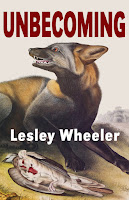Pleasures 2022
by Lesley Wheeler
I’m drafting these paragraphs during a December evening in Virginia as rain pounds the tin roof, but the book I’m turning over in my mind is Leslie Marmon Silko’s diaristic memoir of hot, dry Arizona, The Turquoise Ledge. I can’t quite get over the strangeness of the reading experience. The book’s energy isn’t suspenseful; the future doesn’t interest Silko nearly as much as the present and past (except for her cheerful anticipation of cosmic retribution to a neighbor who bulldozes the arroyo). Instead, The Turquoise Ledge is a recursive book about walking, cloud formations, geology, painting, and coexistence with many creatures. Sometimes I thought I could not handle another chapter about rattlesnakes. But the book’s power manifests in sneaky ways, like the pieces of chrysocolla that crop up on Silko’s hikes.
Like Silko’s long walks, my 2022 reading was nonlinear and full of random surprises. I certainly don’t feel able to present an overview of the year’s most stellar achievements. But one good reason for recommending a book is that something about it penetrates your distraction. Here are a few books besides Silko’s that stay with me.
On the fiction side, I can’t stop thinking about Carolyn Ives Gilman’s highly original world-building in Dark Orbit. I met Gilman at WorldCon a year ago and we bonded about being Aqueduct authors, but her book sat on my shelf for a while, like a mycelium waiting for the right conditions to fruit. If you missed it when it was published a few years ago, go back! I also loved the entanglement of hauntings in Louise Erdrich’s The Sentence and Jason Mott’s Hell of a Book. The dystopian title novella in Nicole Johnson’s My Monticello shifted how I see a local landscape—it always seems extraordinary to me when a book tilts my perspective.
In recent nonfiction, Jan Beatty’s American Bastard speaks powerfully about adoption and identity. Anna Lowenhaupt Tsing’s The Mushroom at the End of the World intensified my curiosity about underground mysteries. That’s another momentous thing a book can do: teach you things you didn’t know you needed to know.
I read a lot of poetry but distraction isn’t good soil for it; I think some of this year’s good books just didn’t hit me at the right moment to sink their claws into my imagination. But a few strong ones that may be of special interest to Aqueduct fans are Jessica Cuello’s Liar, Jennifer Givhan’s Belly to the Brutal, and the bilingual book Búfalo en seis direcciones by Janet McAdams. All explore gendered trauma, and all are charged by a sense of the sacred. So is Trickster Academy by Jenny L. Davis, but in a twisty way, as the title implies, riffing on academic pieties while exposing the damages universities do. Finally, Cindy Veach’s Her Kind is memorably witchy.
Finally, this year I dug around for, read, reread, and taught two new books of Black British poetry: Warsan Shire’s Bless the Daughter Raised by a Voice in Her Head and Kayo Chingonyi’s More Fiya. I love them both, but the latter may be field-changing—it gave me a reading list that will keep me going for a long while.
Lesley Wheeler’s debut novel is Unbecoming, called “an excellent feminist fantasy” in a starred review from Publishers Weekly. She is also the author of five poetry collections, most recently The State She’s In; The Receptionist and Other Tales was a finalist for what was then the James Tiptree, Jr. Award. Her most recent book is a hybrid memoir about reading poetry during a time of crisis, Poetry’s Possible Worlds. Her poems and essays appear in Speculative Nonfiction, Poets & Writers, Strange Horizons, Poetry, Lady Churchill’s Rosebud Wristlet, Kenyon Review, and other magazines. Poetry Editor of Shenandoah, Wheeler lives in Virginia and can be found at @LesleyMWheeler and @LesleyMWheeler@zirk.us.




No comments:
Post a Comment